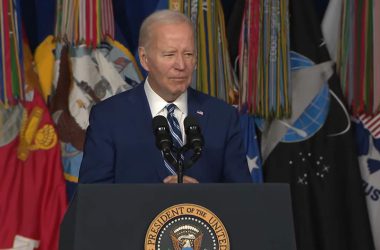WASHINGTON–(ENEWSPF)–June 9, 2016 — As the Senate debates its version of the National Defense Authorization Act this week, the Defense Department and the White House have concerns about the way the legislation now stands, Pentagon Press Secretary Peter Cook told reporters today.
Cook said those concerns include proposed organizational changes that could have a “profound negative impact” on DOD’s ability to perform its functions effectively.
“Many of these changes, we feel, are not well studied or understood, and all would come at a time when the department is carrying out significant national security missions while executing a major transition between presidential administrations,” he said.
Among the changes are major reductions in senior civilian and military leadership positions directed in “an overly detailed fashion,” new organizational structures with the Office of the Secretary of Defense and the combatant commands, and an entirely reorganized acquisition, technology and logistics organization within DoD, Cook pointed out.
Budget Critically Important
“We hope the Senate adheres to the bipartisan Budget Act when it considers the defense appropriations bill, and as [Defense Secretary Ash Carter] has said, certainty in the budget process going forward is critically important to this department,” he added.
The House already has taken a funding approach that raises serious concerns, Cook said. “The secretary has said the House fails to support the vital stability DoD needs to focus on its highest joint priorities, which would risk the return of $100 billion in new sequestration cuts over the next four years,” he added.
The House approach “dangerously gambles with war funding, something even the Senate has rejected,” the press secretary said.
“We again encourage the Senate to carefully debate the issues as they [consider] this important piece of legislation,” Cook said. “In its [existing] form, the secretary would recommend to the president to veto the bill.”
By: Terri Moon Cronk — Follow on Twitter: @MoonCronkDoD)
Source: http://www.defense.gov








